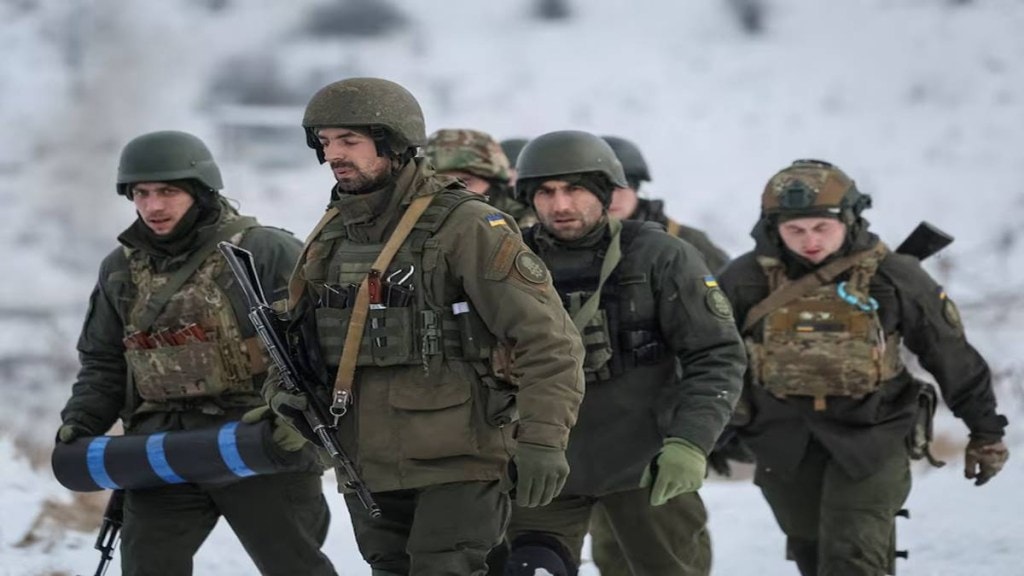By Abhijitha Singh
Although relations between India and Japan have improved a lot in recent years, there has been little convergence in their approaches to the current Ukraine crisis. In the wake of Russia’s invasion of Ukraine (February 2022), the two nations have charted somewhat divergent trajectories in their policies towards the issue. New Delhi sent 15 consignments worth about 117 tonnes of humanitarian aid, including “medicines, medical equipment, blankets, tents, tarpaulin, solar lamps, dignity kits, sleeping mats, and diesel generator sets” to Kyiv. At the same time, India has acted in a way that doesn’t hurt Russian sentiments. It hasn’t condemned the Russian invasion of Ukraine and has abstained from all UN resolutions critical of the Russian invasion. India has also increased its oil purchases from Russia.
In contrast, Japan has gone whole hog with the United States and its allies. Tokyo has condemned the Russian invasion and given economic and military aid to Ukraine. Japanese Prime Minister Kishida branded the Russian invasion as an “unbelievable aggression by an authoritarian state … trampling on international law and humanity.” In February 2023, Japan announced it would give approximately $5.5 billion of financial support; including $900 million in humanitarian assistance, to Ukraine. In total, Japan has so far committed over $10 billion to Ukraine. At the Japan-Ukraine Conference for Promotion of Economic Reconstruction held in Tokyo on February 19 this year, Japan signed a range of agreements aimed at rebuilding Ukraine from the war damage it has sustained since the Russian invasion.
One finds this divergence between the two countries detrimental to their interests. The support Japan, in league with the United States and its Western allies, has extended to Ukraine has drawn Russia closer to China and North Korea. Now the Russian and Chinese armed forces regularly exchange information, share military-technology, and conduct joint exercises in the Far East region and in Europe. Recently, the Russian Pacific Fleet was in a massive naval drill with the Chinese. The drill involved sealing off parts of the Sea of Japan.
Given the well-documented Chinese designs against most of its neighbours across the Indo-Pacific and the Himalayas, New Delhi and Tokyo need to be cautious of the growing coalescence between Russia and China, the two nuclear powers. This adds to Beijing’s military prowess. China might use the accretion in its military strength to pose a threat to the territorial integrity of India and Japan both.
One would suggest India and Japan may coordinate better to halt the Russo-Chinese coalescence and prevent it from deepening further. For this, India and Japan may use all their available bilateral mechanisms at the prime-ministerial and 2+2 dialogue (foreign and defence secretaries) levels. New Delhi and Tokyo may also use their growing bonhomie with Washington to bring it close to Moscow and address the concerns that led to Russia’s invasion of Ukraine.
Japan may bear in mind that it is the eastward expansion of NATO in the post-Soviet landscape that has caused Moscow to take measures against Ukraine. As per the understanding Russia and the United States reached after the dissolution of the Soviet Union, Washington was not supposed to expand NATO eastward. But the successive US administrations did otherwise.
In 1998, during the Presidency of Bill Clinton, Poland, the Czech Republic and Hungary joined NATO. In 2004, the George W Bush presidency saw the NATO admit Romania, Bulgaria, Slovakia, Slovenia, Latvia, Estonia and Lithuania into the NATO. Croatia and Albania followed them in 2009. Moscow annexed Crimea only after a pro‐Russian president was replaced by a pro-West/NATO one in Kyiv in 2014. The Russian invasion of Ukraine took place in February 2022, only after Ukrainian President Zelenskyy urged President Joe Biden to allow the Ukraine membership of NATO which was positively received by the latter.
The author is a doctoral scholar at the Centre for East Asian Studies, School of International Studies, Jawaharlal Nehru University, New Delhi. He can be contacted at: kj.abhijitha.13@gmail.com
Disclaimer: Views expressed are personal and do not reflect the official position or policy of Financial Express Online. Reproducing this content without permission is prohibited.

